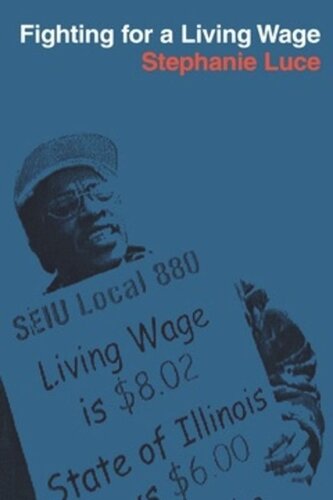

Most ebook files are in PDF format, so you can easily read them using various software such as Foxit Reader or directly on the Google Chrome browser.
Some ebook files are released by publishers in other formats such as .awz, .mobi, .epub, .fb2, etc. You may need to install specific software to read these formats on mobile/PC, such as Calibre.
Please read the tutorial at this link: https://ebookbell.com/faq
We offer FREE conversion to the popular formats you request; however, this may take some time. Therefore, right after payment, please email us, and we will try to provide the service as quickly as possible.
For some exceptional file formats or broken links (if any), please refrain from opening any disputes. Instead, email us first, and we will try to assist within a maximum of 6 hours.
EbookBell Team

5.0
50 reviewsThe living wage movement is considered by many to be the most interesting grassroots enterprise to emerge since the civil rights movement. Ten years after the first ordinance was passed in Baltimore, there are more than one hundred living wage ordinances on the books across the United States, and the movement continues to thrive and grow, despite increasing opposition. This book is not a simple celebration of the living wage movement, but a critical evaluation in which Stephanie Luce, a national expert on living wage campaigns, assesses the strengths and shortcomings of various campaigns and their resulting implementation.
Although many local governments have been convinced to pass living wage ordinances, the movement has had less success in ensuring that these ordinances are fully realized. Some cities have consistently enforced their ordinances after passage. In other communities implementation is weak or nonexistent, and thousands of workers do not benefit from laws designed to ensure that they are paid a living wage.
Luce provides in Fighting for a Living Wage the first serious examination of the reasons for implementation failure, as well as an analysis of the factors that lead to success. Luce argues that citizens can play a significant role in implementing and monitoring living wage policies, even where governments oppose the movement or are reluctant to enforce the laws in question. Luce finds that the nature of the campaign to formulate and pass policy can influence the likelihood of successful implementation. Surprisingly, the chances for thorough enforcement are greater in communities where living wage campaigns caused more, not less, conflict.
For more about this book and its author, click here.